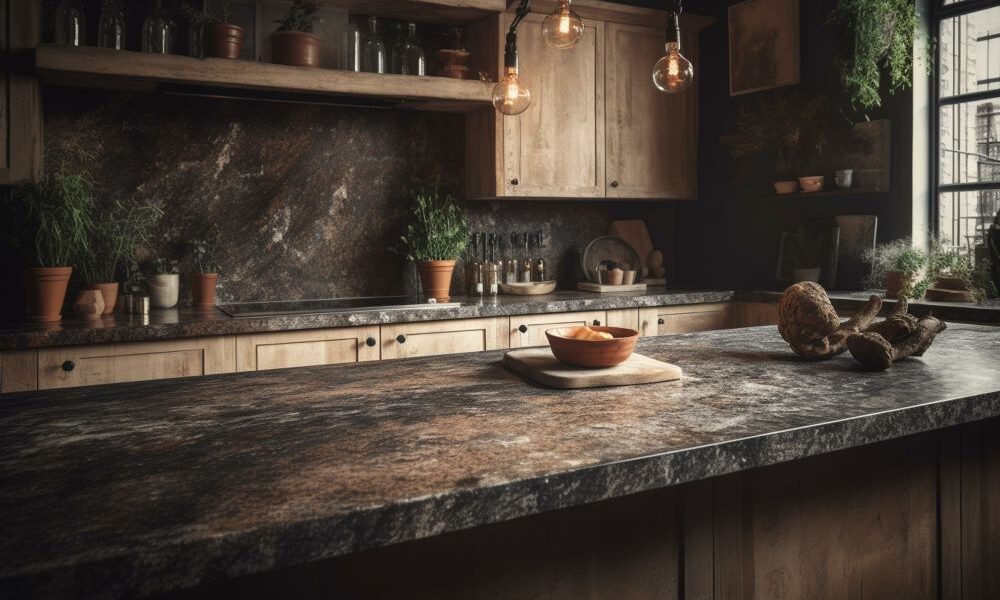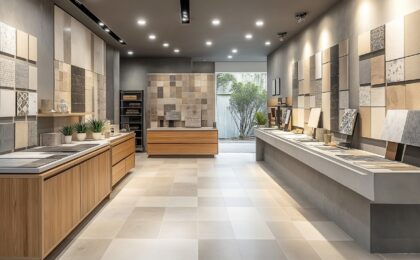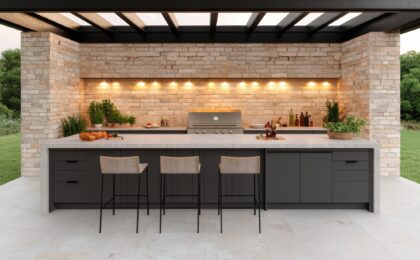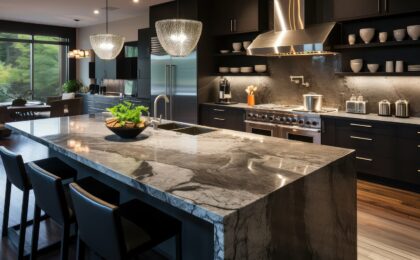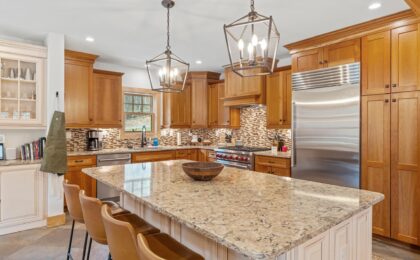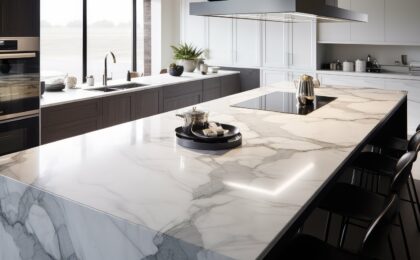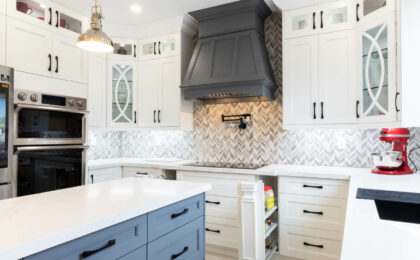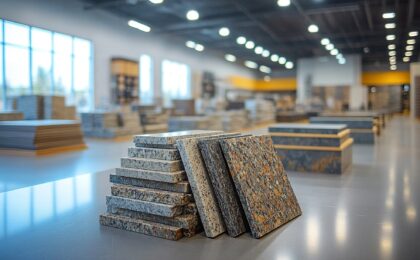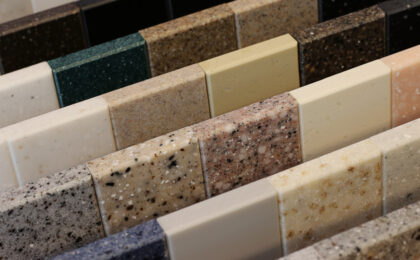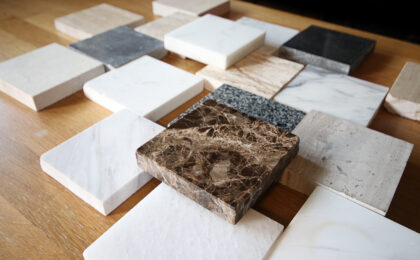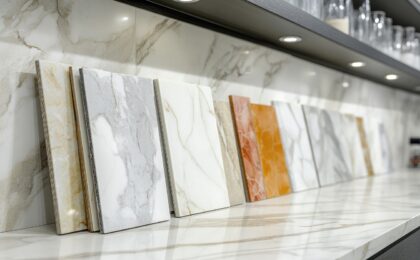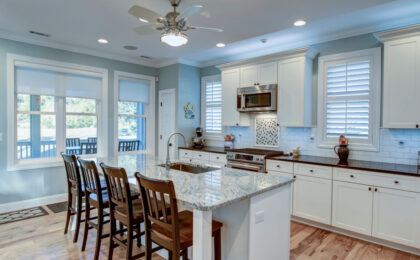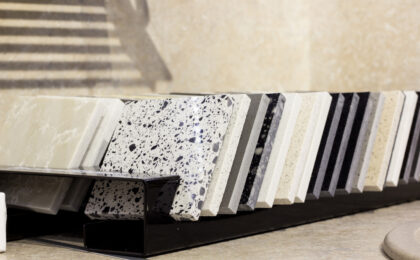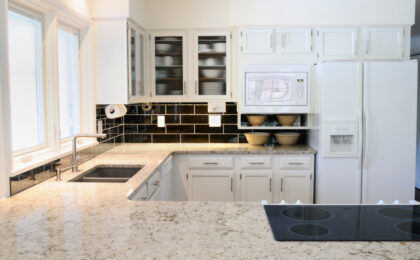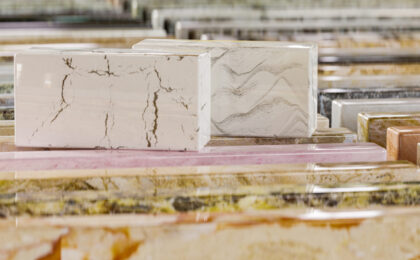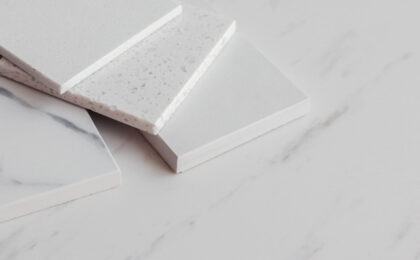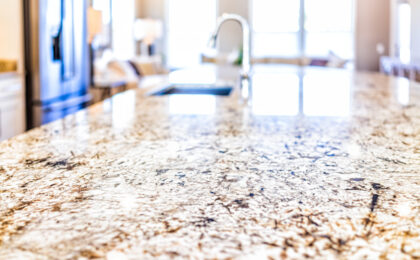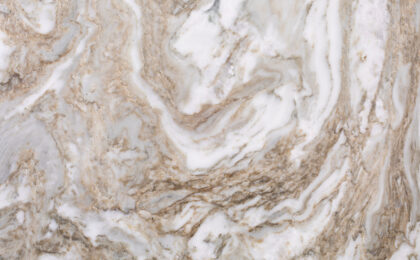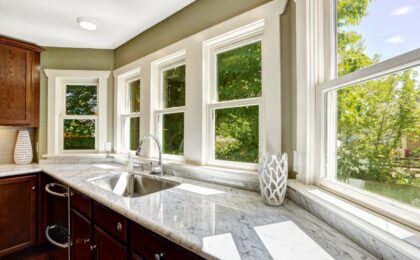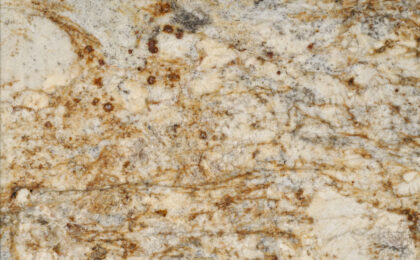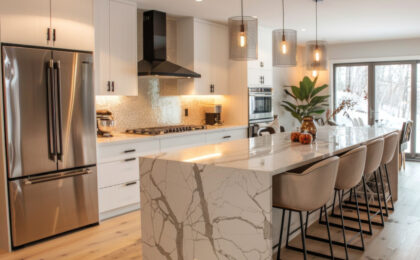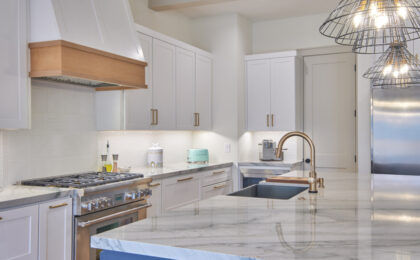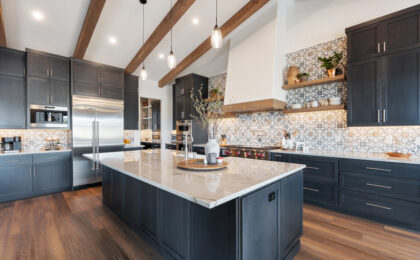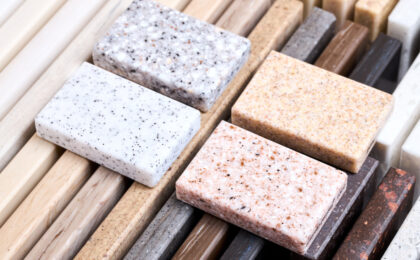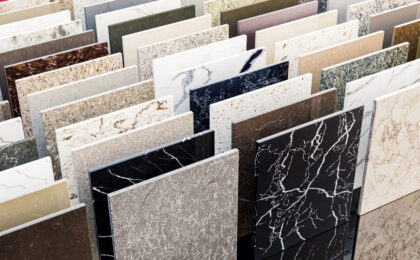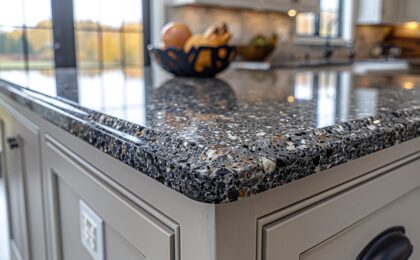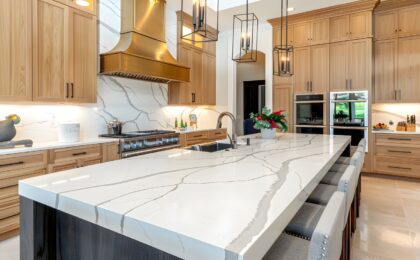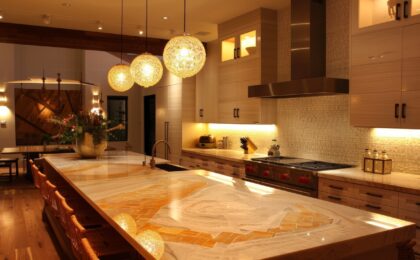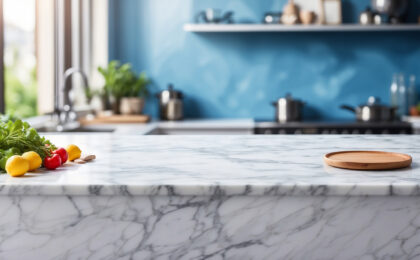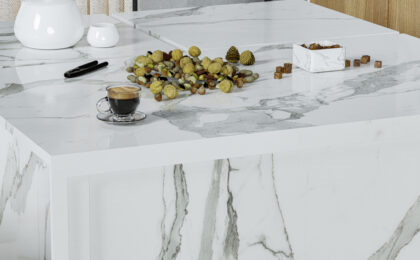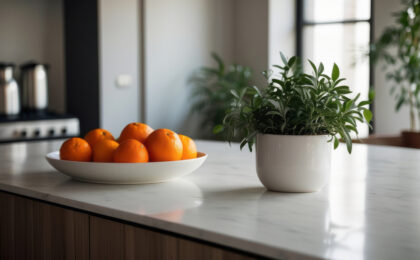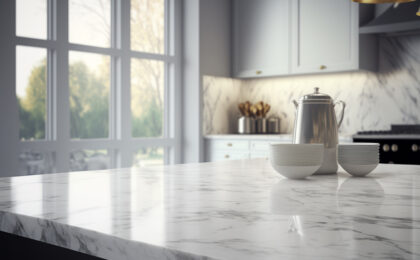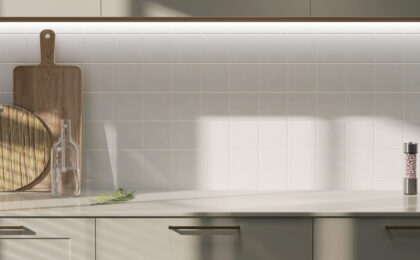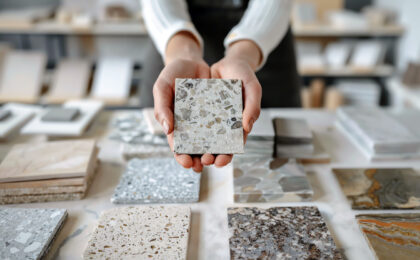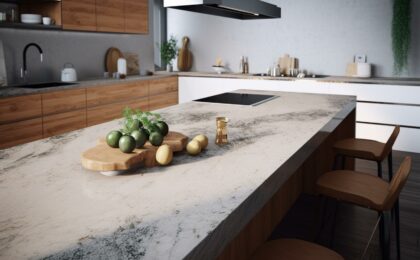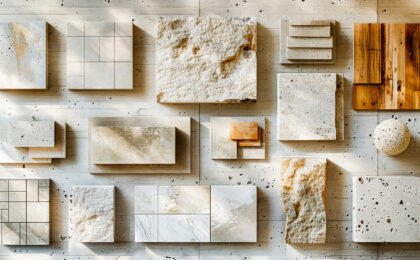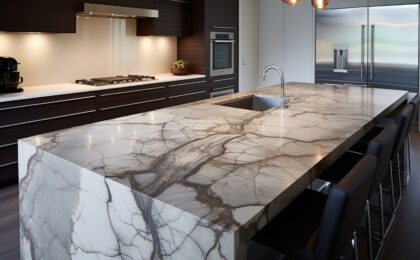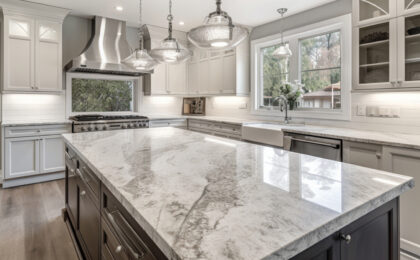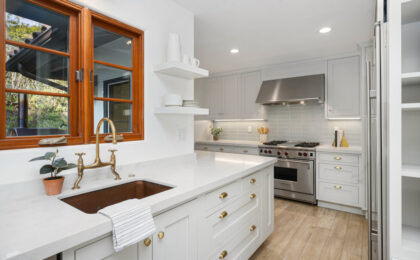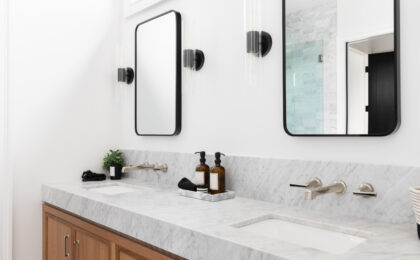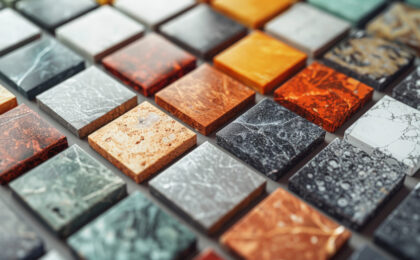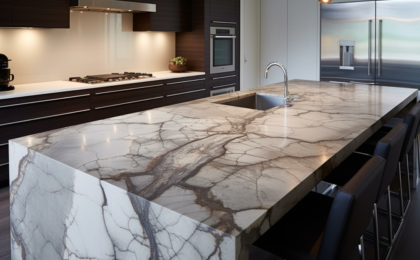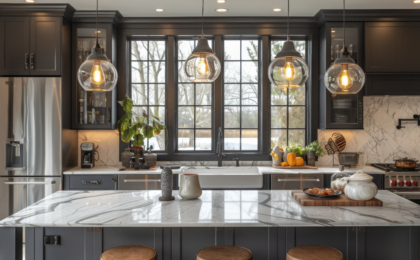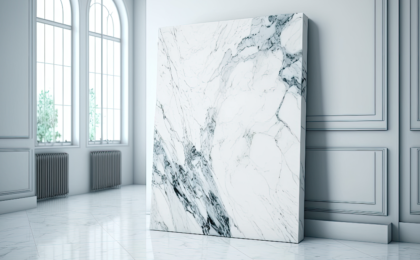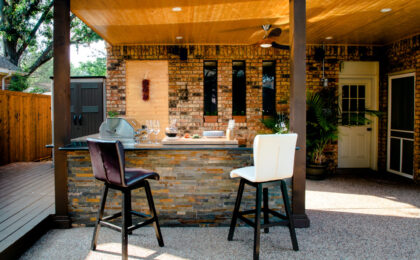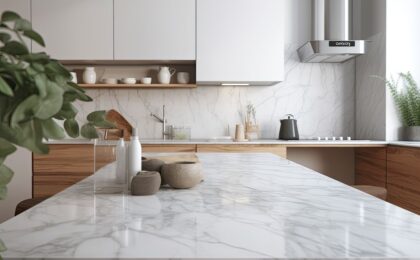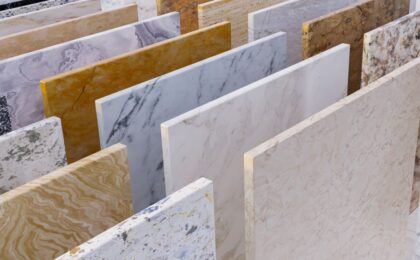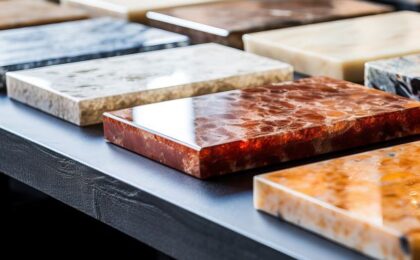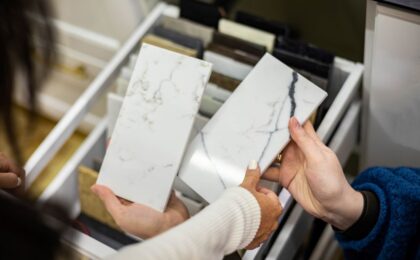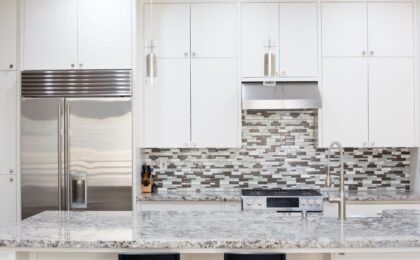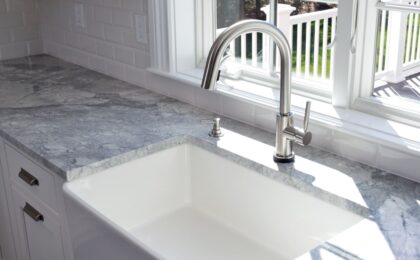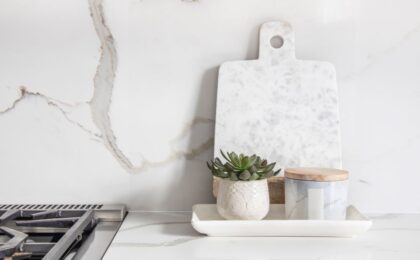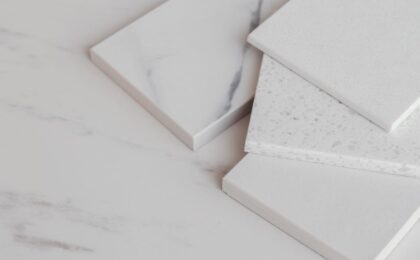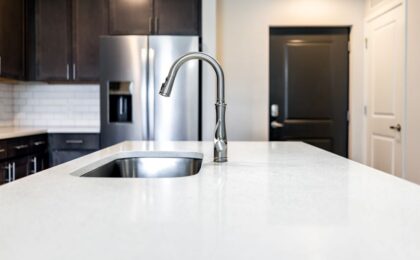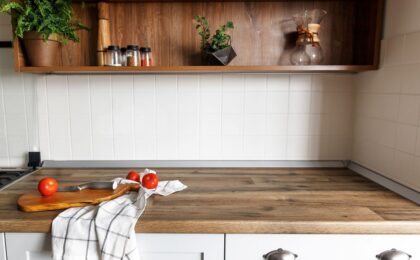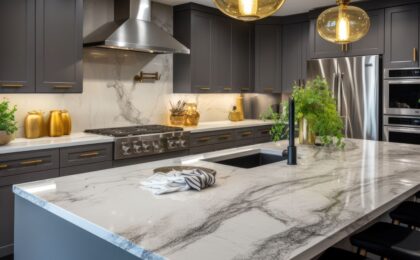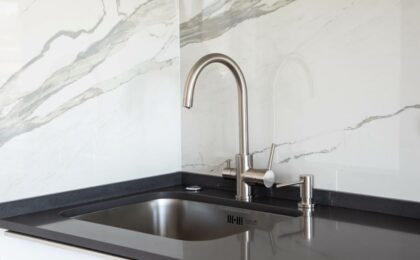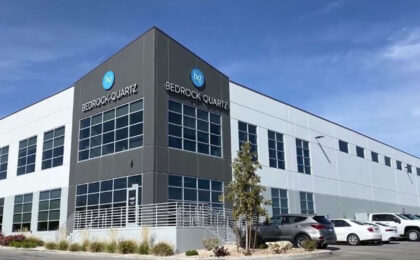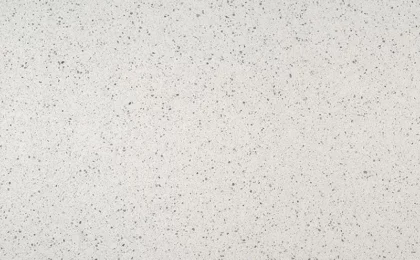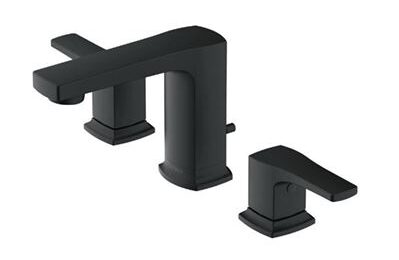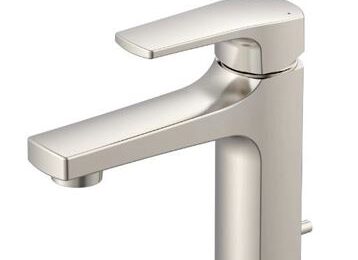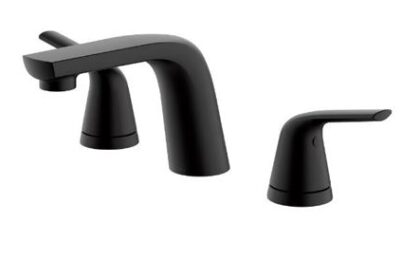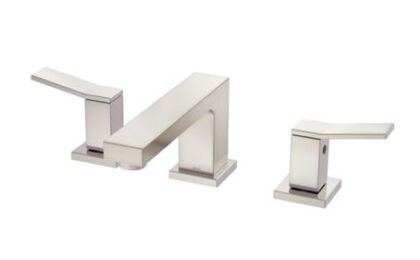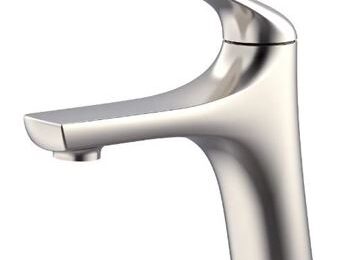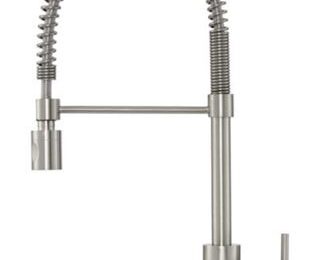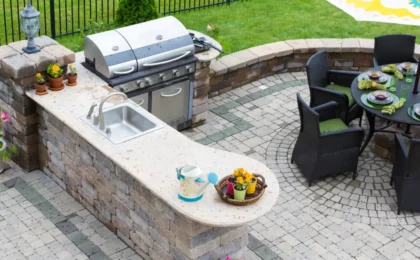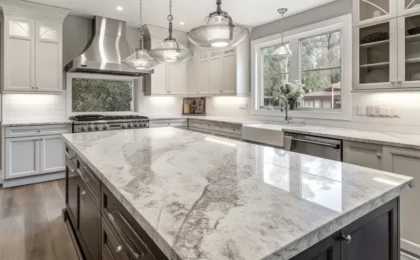In our business, there are plenty of terms that confuse people. Take quartz and quartzite. Despite the similarity of the two words, they represent two distinctly different materials. You are not getting quartzite when you invest in quartz countertops from Bedrock Quartz.
Knowing the differences between the two could be helpful in your quest to find the perfect countertops for your kitchen and bathroom. Note that Bedrock Quartz carries quartz, quartzite, granite, and marble countertops. With that said, let us get to the differences.
Natural vs. Manufactured Stone
Both quartz and quartzite countertops are classified as stone countertops. But one material is manufactured while the other is natural. Let’s start with the manufactured one: quartz.
Quartz is a naturally occurring mineral found mainly in silica sand. Because individual pieces are so small, it is impossible to mine slabs large enough to form a single-piece countertop. So quartz minerals are mixed with resins at a rate of about 70%. Resins hold the minerals together to create a solid product.
Quartzite is a natural stone found in the Earth’s crust. It is formed over long periods of time through a combination of heat and pressure. Quartzite is essentially sandstone that has been treated by nature to make it tougher and harder.
Natural vs. Engineered Appearance
As a natural stone, quartzite is exceedingly beautiful. Quartzite colors include gray, beige, and white – all in a variety of shades. Quartzite can also demonstrate veining and mineral inclusions that make it look similar to granite and marble. The only downside is that you get what nature gives you.
Because quartz countertops are engineered, they can be made to look like almost anything. Quartz countertops offer a broader range of colors and patterns. They can be engineered to look like natural stone or something from another world.
Practicality and Usability
For many homeowners, the difference in looks between quartzite and quartz are less important than practicality and usability. Countertops need to be able to withstand a considerable amount of punishment, especially in the kitchen. This is where the biggest differences show up.
Quartzite has an advantage in that it is harder and more resistant to scratches. But there is a tradeoff. Quartzite is also more brittle. That makes it more susceptible to cracks and chips. Its porous nature requires that it be sealed more frequently.
Quartz is equally durable. It offers more scratch resistance, though not as much heat resistance. Quartz also doesn’t have to be sealed. It is extremely stain resistant and, because it is nonporous, it requires very little maintenance other than being wiped down with a damp cloth and a mild cleaner.
Budget Considerations
Another significant difference between the two materials is cost. Quartzite is a rare natural stone, thereby making it more costly as a countertop material. It also needs to be sealed regularly. Annual sealings are the bare minimum, though a quartzite countertop that gets a lot of use could need semi-annual treatments. Sealing only adds to the overall cost.
Quartz countertops tend to cost less from the get-go. Because they require minimal maintenance and are so durable, homeowners are less likely to spend a lot of money on their countertops post-installation. The total cost of ownership tends to be less with quartz.
Both quartzite and quartz are attractive options for kitchen and bath countertops. We cannot help you with quartzite, but we do have a wonderful collection of quartz countertops for you to consider. We invite you to visit our showroom and experience quartz for yourself. We think you’ll find it a worthy option.
